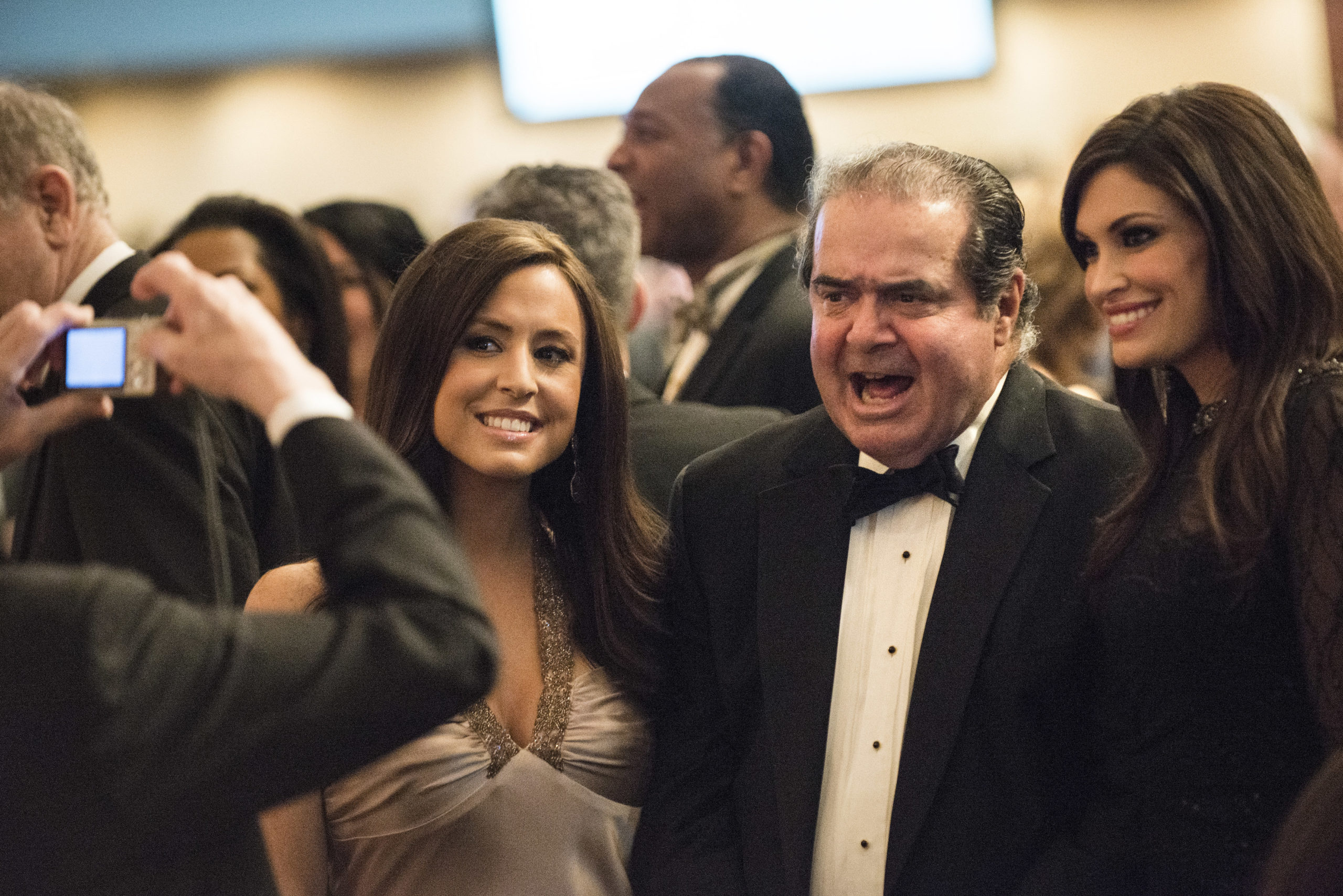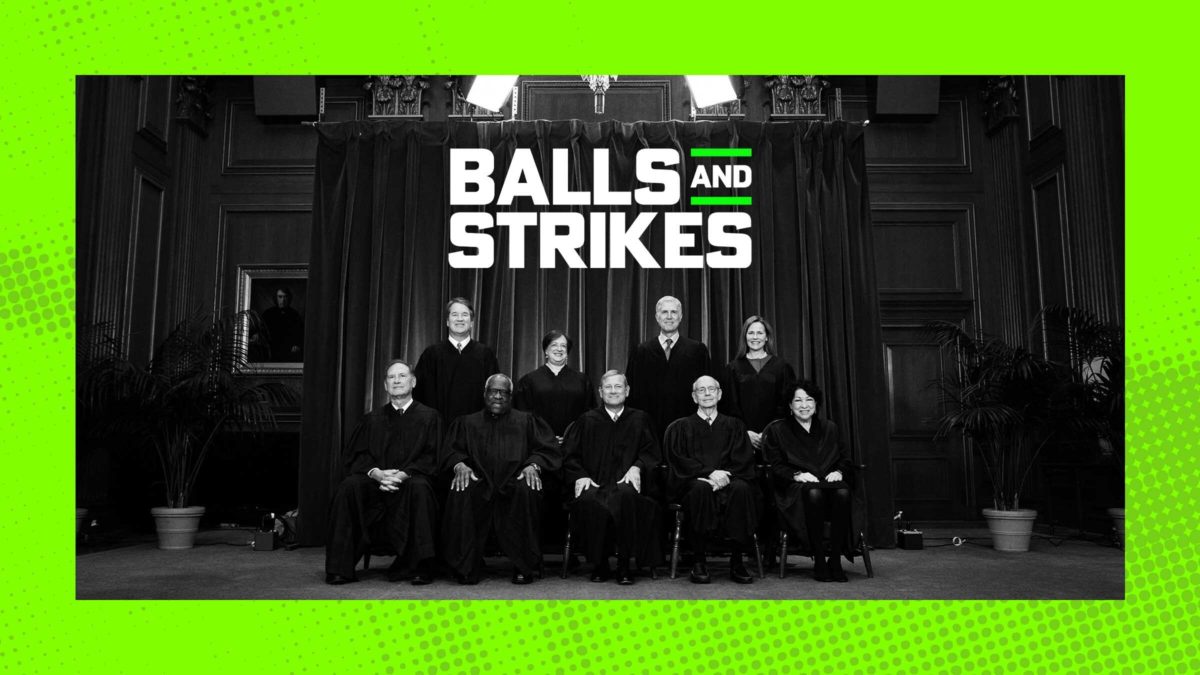This week in Balls & Strikes, Adam Rust remembers some of the greatest hits of the legal profession’s most dependable op-ed archetype: famous liberal lawyers assuring the public that the reactionary drones nominated to lifetime seats on the federal bench are actually very nice and smart people. Sure, they might spend their careers rolling back the civil rights of people they don’t like. But they will be so polite about it!
Adam’s essay focuses on a few entries from the Trump era: Noah Feldman, who told us why “Amy Coney Barrett Deserves to Be On the Supreme Court”; Neal Katyal, who explained “Why Liberals Should Back Neil Gorsuch”; and Akhil Amar, who made something that he imagines to be “A Liberal’s Case for Brett Kavanaugh.” Alert reader Matt Erickson, however, made me aware of an even earlier entry in this genre: the Senate Judiciary Committee testimony of former Yale Law School dean Anthony Kronman in support of now-Justice Samuel Alito, nominated by President George W. Bush in 2005. In it, Kronman painstakingly explains why Alito, a man who has spent the last 16 years doing whatever is likeliest to earn him a record-setting standing ovation at the next black-tie Federalist Society event, would be a “justice’s justice” if confirmed to the Supreme Court.
Kronman, a self-identified Democrat, befriended Alito at Yale Law School in the early 1970s. As all authors of these obsequious op-eds do, Kronman begins by praising Alito as a “first-rate mind” who grasped concepts with “intimidating speed.” But “equally striking was the gentleness with which he spoke,” Kronman recalls: “Sam might be persuaded he was right, but always expressed his views with a modesty that made it clear that he knew he might be wrong.” Examining Alito’s career as a federal appeals court judge, Kronman expresses his admiration for his “cautiousness and deference”; his “inclination to stay as close to settled law as possible”; his willingness to “give weight to the considered judgments of others”; and his desire to “move in small steps rather than bold ones.”
“In no case would I say that his position…is driven by ideology,” Kronman writes. “He holds no view, so far as I can tell, that is impervious to facts.”
Picking a single anecdote from Sam Alito’s career to illustrate how breathtakingly wrong this analysis is is sort of like trying to decide which specific body of water best demonstrates the proposition that humans cannot breathe in it. Alito is so open-minded about the possibility that he might be wrong, of course, that he transforms into a standard-issue cancel culture zealot when criticized by anyone he doesn’t like. None of this supposed gentleness is evident in, say, Alito’s dissent in Bostock v. Clayton County, a glorified transphobic Fox News comment. No putative respect for the considered judgments of others is on display in his sneering concurrence in New York State Rifle & Pistol Association v. Bruen, which serves no purpose other than to air out some petty grievances about the tone of Stephen Breyer’s dissent. If the guy who wrote the opinion that overturned Roe v. Wade after 50 years of trying gives a single shit about being “cautious,” or “staying as close to settled law as possible,” or “moving in small steps rather than bold ones,” I have yet to see a shred of evidence for it.
The most telling sequence comes when Kronman transitions from his nostalgic recollections of attending law school with Alito to his cursory discussion of, you know, everything Alito did in the decades that followed. “I have not read all of Sam’s opinions, nor am I an expert in all the areas in which he has written,” Kronman allows. “But I have read enough to have a sense of Sam the judge, and it fits my sense of Sam the human being.”
In my view, the notion that Kronman could not hazard some guesses about the future jurisprudence of Alito, who was declaring in job applications that “the Constitution does not protect a right to abortion” a decade after they graduated, strains credulity. Even setting that aside, however, this is remarkably damning concession: Kronman doesn’t think the question of what Alito would do with power—and thus whether it would be good or bad for you, the reader, if he had it—is worth exploring in too much depth, because one elite lawyer’s 30-plus-year old memories of bullshitting with a law school buddy over bad dining hall meals give him the confidence to inform you, the reader, that you have nothing to worry about.
Perhaps the only line of this essay that turned out to be accurate appears in the introduction: Alito, Kronman says, displays “a deep devotion to the culture and values of the law.” This is right, but presumably not in the sense Kronman meant it: Alito is a creature of a legal culture that values dead-end collegiality over considerations of the real-world consequences of legal process. This myth is what ensures that conservative judges have this steady stream of credulous liberals eager to prove their institutionalist bona fides by standing up to the critics. Maybe Kronman thought that by testifying in support of his old friend, he was showing that law exists separately from ideology and politics. His old friend has been proving him wrong ever since.
As always, you can find us at ballsandstrikes.org, or follow us on Twitter @ballsstrikes, or get in touch via[email protected]. Thanks for reading.
This Week In Balls & Strikes
How the Conservative War on Campaign Finance Regulation Hastened Roe’s Downfall, Marisa Wright
In her latest book, law professor Mary Ziegler tells the story of how the movement to end legal abortion became intertwined with a different conservative pet project.
Disgusting Grants of Qualified Immunity: Not Just For Cops Anymore!, Lisa Needham
The same barbaric legal doctrine that protects cops from liability for misconduct protects abusive teachers and school administrators, too.
Which “Liberal Cases” For a Conservative Supreme Court Nominee Aged Worst?, Adam Rust
Presenting the liberal’s case for never listening to Neal Katyal again.
This Week In Other Stuff We Appreciated
The Supreme Court’s Conservatives Love a Good Story, Facts Be Damned, Matt Ford, The New Republic
The Roberts Court is proving itself a willing dupe for plaintiffs with the right tale to tell.
The Supreme Court Has Ushered In a New Era of Religion at School, Adam Laats, The Atlantic
For two centuries, America had kept questions of church and state at bay. The country is not ready for the ones to come
How the Calvinball Supreme Court Upended the Bar Exam, Aaron Regunberg, The New Republic
How do you study for a test that the justices are rapidly making obsolete?
The Twisted Legal Path to Oklahoma’s Looming Execution Spree, Liliana Segura, The Intercept
A trial was supposed to decide whether Oklahoma’s lethal injection protocol was cruel and unusual punishment. But it was rigged from the start.
This Week In Obscure Photos of Supreme Court Justices On Getty Images


